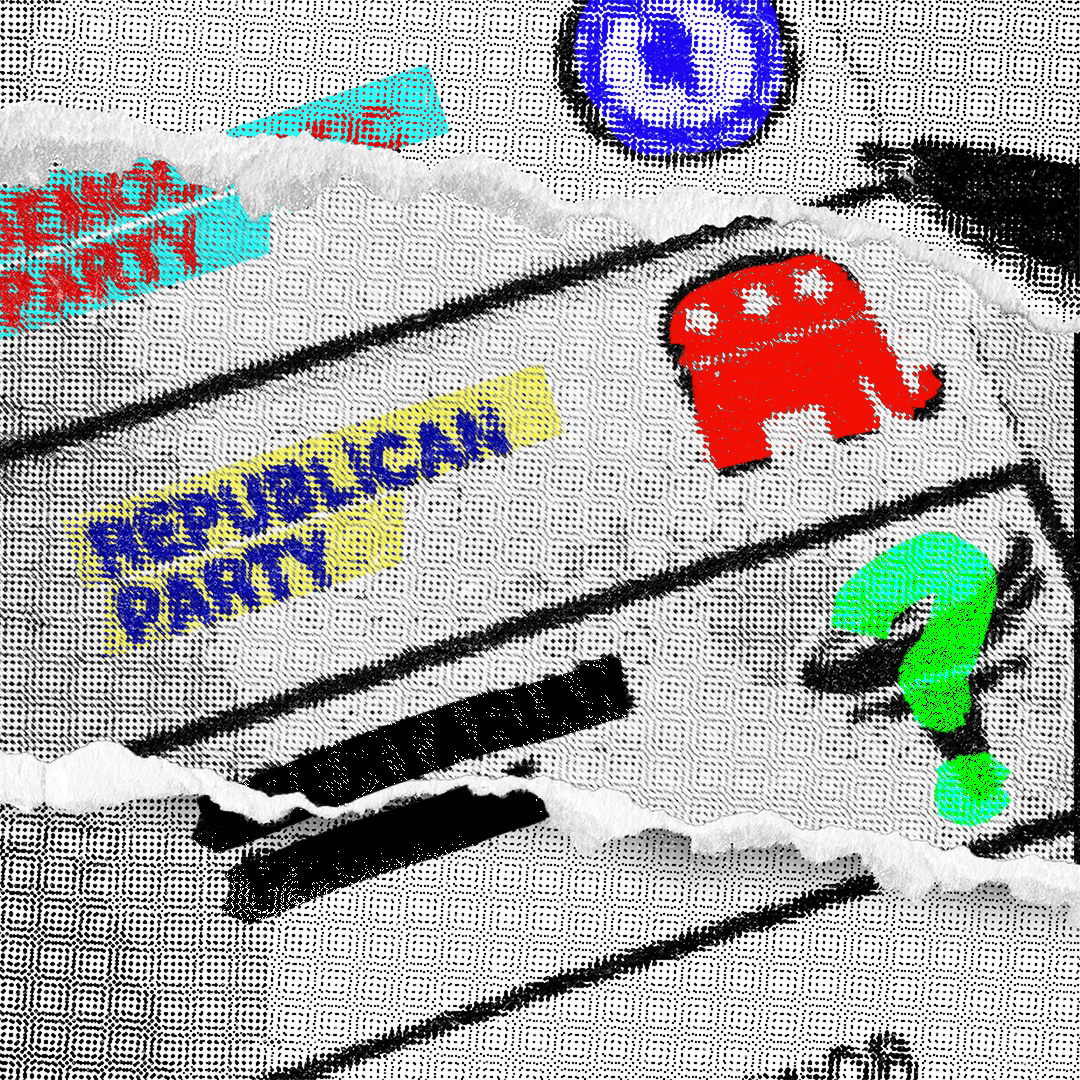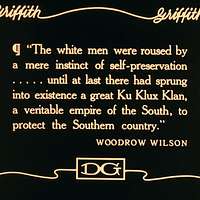This story is syndicated from the Green Hope Falcon at Green Hope High School in Cary, NC. The original version of the story ran here.
Imagine if Beyoncé, Rihanna, Taylor Swift and Lady Gaga are all in the race for album of the year, and someone votes for Tate McRae to win. There is little chance that Tate McRae – whose popularity is far less than the aforementioned artists – is beating Taylor Swift for album of the year, so was that vote considered a waste? You can ask that same question to people who vote for third party candidates for presidencies.

Every four years, third party candidates set out to gather support for their electoral presidential campaign. They position themselves as being the less “evil” option compared to their dichotomous Democrat or Republican counterparts. Their relatively more moderate stance is a strength they leverage when talking to voters. While this may seem like a clever strategy, how many presidential elections have been won by a third party candidate?
Zero.
Theodore Roosevelt tried running as a third party candidate in 1912 with his forming of the Progressive Party, nicknamed the Bull Moose Party, after he lost the Republican nomination to William Howard Taft. This was the same year of Roosevelt’s assassination attempt.
Luckily for Roosevelt, the bullet was slowed down by his overcoat, eyeglasses case and fifty-page long copy of the speech he was meant to recite.
However, with all the publicity that Roosevelt received, he still lost the presidency. Not even getting shot and surviving an assassination attempt could propel a third party candidate to the White House. The only real effect of Roosevelt’s candidacy was acting as a spoiler – meaning, a candidate who does not win, but their presence on the ballot affects who comes out as the winner – for Woodrow Wilson to gain the presidency.

Yes, that Woodrow Wilson—the one that screened “The Birth of a Nation,” a film often regarded as the most racist movie in history, inside of the White House. The first movie ever shown in the White House was about sympathizing with the Ku Klux Klan against those “barbaric” black people (many being white actors in black face). Wilson’s quotes on the title cards in the movie are telling of his views on race.
And it is not a situation of him being a product of his own time, Even in the early 1900’s, he was a little too racist with his policies and hardcore beliefs. The time period that Wilson found himself to be was one of extreme prejudice towards non white people.
Jim Crow laws were thriving, anti immigration was a strong feeling brought out by many people and Native Americans were still being treated as if the very land they stood on did not belong to them first. Given the views on racism at the time, to be considered racist by others indicates Wilson’s views were extreme, even then.
The Republican party split its vote between Roosevelt and Taft, subsequently giving Wilson the win. There is no way to be certain, but if Roosevelt never ran in the 1912 election in spite of Taft, Wilson would most likely have never stepped into the White House.
A more recent example would be the 2016 election between Hilliary Clinton and Donald Trump, where third-party candidate Gary Johnson spoiled the election with a small portion of the total votes.
The 2016 election is cemented as one of the most “What-ifs?” presidential elections in United States history, alongside the race between George W. Bush and Al Gore in 2000. There are just so many things people can look back on and wonder about, one of them being the third party voters in Pennsylvania, Michigan, and Wisconsin.
According to Politico, in Pennsylvania, Trump had won with 2,912,941 versus Clinton’s 2,844,705. The difference being 68,236 voters, and how many people voted for Gary Johnson? 142,653; in Michigan, Trump (2,279,805) beat Clinton (2,268,193) with a difference of 11,612. Johnson received 173,057 of the votes. Victory was right at the corner and at the same time out of reach; and in Wisconsin, Trump had won the state with 1,409,467 compared to Clinton’s 1,382,210.
Clinton could have won Wisconsin if only 27,257 people switched their votes over to her, but the people who had the ability to give Clinton the win were too busy being a part of the 106,442 who voted for Johnson’s campaign.
Due to the flawed structure of the electoral college, 107,105 voters cost Clinton the entire election because they decided to cast their faithless vote in a candidate that had virtually no chance of winning.
There is no lack of critics of America’s two party system, but realistically, it is not going anywhere anytime soon.
Some believe that voting third party allows people to express their frustration with mainstream candidates that fail to satisfy their values. What they miss is the fact that there is not a single president past or present that will ever cater to the values of one singular person.
George Washington was the first president to hold the White House being unanimously elected with 69 electoral votes. Washington was seen as a hero by the American people during his inauguration; however, at the end of his first term, newspapers and journals started attacking Washington for his domestic and foreign policy. As the first president ever, he had no predecessor to look back on and yet he still could not represent everyone’s values. It is an impossible feat that should not be a factor that pushes someone to vote third party.
A Democrat or Republican candidate is not going to represent everyone exactly, but that’s a flaw inherent to any political structure.
Voting for a third party carries the same weight as just not voting at all, it has absolutely no effect on what lies in America’s future. How can anyone think they have the moral high ground when they vote for people who have no chance in changing America for the better?
Our country has many problems that need to be addressed. Whether it is healthcare or climate change, there is a lot that needs to be done. Nothing gets done if a person does not vote for a candidate who proposes those solutions. Now, presidents not fulfilling their promises is bound to happen.
At the 1988 Republican Convention, George H.W. Bush said, with the utmost confidence in his voice, “Read my lips: No more taxes.” Afterwards, Bush signed the Omnibus Budget Reconciliation Act of 1990, which raised multiple taxes.
Presidents go back on their words all the time, but that is not something that should stop someone from voting for them. If someone puts their hope in a candidate, that itself is an amazing feat. It takes a lot of willpower to consistently have hope, especially after life keeps chipping away at it until there is nothing left.
Hope is always a beautiful thing to have and no one should be ashamed of it. If a president does not end up delivering their word, at least you voted in the thinking that you were going to change your country for the better.
Voting used to be a privilege, not a right. Only wealthy, white men could vote on the future of a country that belonged to a much more diverse demographic. Expansion of suffrage rights was an uphill battle. In 1870, the Fifteenth Amendment allowed for men of all races to have the right to vote. Then the Nineteenth Amendment of 1920 granted women voting rights – but white women, to be exact.
Finally, the Voting Rights Act of 1965 prohibited all racial discrimination that goes towards voting.
Although we’ve come a long way, 1965 was not that long ago. Do not let those black and white pictures that are enumerated in history books confuse you. Voting started out being only for the people deemed “deserving” of it, nobody else.
People had to go out and fight for the right to be seen as worthy to cast their ballots, that is a long, storied fight that is not something to be taken lightly. Voting was– and is– the only way to get representatives into office that could make a positive change in communities that historically are overlooked.
Voting rights are a core pillar to any democracy, but some just throw away their vote by voting for the third party. It comes from a being a little too complacent. Some are aware that whatever happens will not affect them in the way that it will others. A thought that many people unfortunately hold and not realize that they have it.
America is a place that should help each other, your children and grandchildren should be allowed to live in a country where every community and group of people should have their needs recognized and respected. It does not have to be someone you know personally in order for you to stop voting for a third party.
So, what is the point of a third party? Nothing good for the country. Well, maybe if enough people vote, has been said for years, but in a country with over 330 million people, there are never enough votes to make a third party enter the Oval Office.
If you genuinely want to make a difference, third party candidates for Presidency will not do America, its citizens or you any favors.



